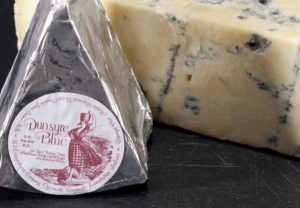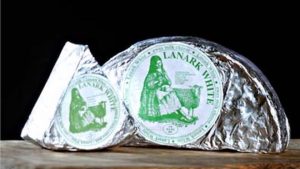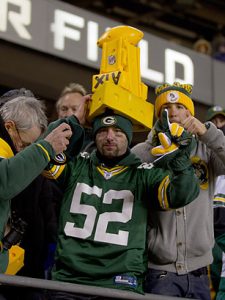The family that produces the gourmet cheese at the centre of fresh concerns over a fatal E. coli outbreak say they will be made bankrupt after a food watchdog confirmed all its produce is to be destroyed.
 Investigators confirmed that their probe has now been widened after two more people were identified as being infected bring the number who were ill to 22, of which 13 have needed hospital treatment.
Investigators confirmed that their probe has now been widened after two more people were identified as being infected bring the number who were ill to 22, of which 13 have needed hospital treatment.
They are also examining whether cases of E. coli O157 infection affecting children in the Angus area may also be linked.
Food Standards Scotland (FSS) on Wednesday issued a blanket ban on the sale of all cheese from Errington Cheese, of Carnwath, South Lanarkshire, the producer linked to the outbreak which led to the death of a three-year-old Dunbartonshire girl.
FSS explained for the first time details of tests during the seven-week long alert.
It confirmed E. coli non-O157 was detected in one sample of Dunsyre Blue produced by Lanarkshire-based Errington Cheese which is considered a “serious risk to public health”.
It said 13 samples in different batches of Errington’s Dunsyre Blue and one of Lanark White have tested “presumptive positive” for shiga toxin producing E .coli and are considered to be “potentially hazardous to health”.
While E. coli O157 was detected in one sample of Lanark White cheese it was not shown to contain stx genes which were found in people who were ill. However a food examiner declared it was “potentially injurious to health and/or unfit for human consumption”.
All positive tests were still awaiting “further confirmatory testing”. It was not clear when the testing took place.
A multi-agency Incident Management Team (IMT), that includes Health Protection Scotland and Food Standards Scotland’s Scottish arm has been reconvened to deal with the latest developments.
Ten days ago the IMT had declared the outbreak to be “over” and that it had stood down leaving the FSS working with South Lanarkshire Council to continue food safety investigation.
And Professor Hugh Pennington, an expert on E.coli has questioned the proportionality of the food watchdog’s decision to issue a blanket ban on the sale of all cheeses from Errington.
 The emeritus professor of bacteriology at the University of Aberdeen, said FSS had come down “very heavily” on Errington Cheese, stating there is a “real possibility” the organisation was “over-interpreting scientific evidence.”
The emeritus professor of bacteriology at the University of Aberdeen, said FSS had come down “very heavily” on Errington Cheese, stating there is a “real possibility” the organisation was “over-interpreting scientific evidence.”
He said that the “jury was still out” and while there may be a “moderately strong” case on Dunsyre Blue, there was “no scientific evidence” on any of the firm’s other cheeses.
Humphrey Errington, owner of Errington Cheese insisted there is no evidence linking his cheese to the outbreak insisting investigators will not talk to them about the proof for the sales ban.
FSS deny this, saying all all results from samples were shared with Errington and insist decision take to recall Errington Cheese Ltd products are “evidence-based and informed by interpretation from experts including legally designated food examiners”.
“They have destroyed us, basically. We are completely finished,” said Mr Errington. “It’s a nightmare. Unfortunately, nightmares are things you wake up from.
“They are destroying cheese to the value of £300,000, there is no company of our size that can survive that. “Our reputation is completely destroyed and the family will be bankrupt.
FSS said: “Potentially harmful strains of E.coli and the shiga toxin (stx) genes that can cause illness in humans have been found in a number of different batches of different cheeses produced by Errington Cheese Ltd.
“This means that FSS is not satisfied that the controls and production methods used by the business are producing safe food. Furthermore, the reliance on a limited number of negative test results as evidence that the food is safe provides insufficient assurance.
 “Throughout this incident FSS has taken a proportionate approach based on the evidence and it considers that the evidence now
“Throughout this incident FSS has taken a proportionate approach based on the evidence and it considers that the evidence now
IMT chairman Dr Alison Smith-Palmer said that the IMT has established that 19 of the 22 confirmed cases had eaten blue cheese prior to becoming ill.
Of these, 15 are known to have eaten Dunsyre Blue while others cannot be certain about the brand of blue cheese they have consumed. Investigations are ongoing on the other cases.
Food Standards Scotland stated that on 14 September 2016 Food Standards Scotland (FSS) issued a food alert for action (FAFA) for all products produced by Errington Cheese Ltd. That decision was not taken lightly. FSS is fully aware of the impact on the business, but its priority is to protect public health.
FSS’s primary focus is protection of consumers. FSS has made information available where this has been in the public interest, but it would not be appropriate to conduct an ongoing food safety investigation through the media.
The recent outbreak of E. coli O157 has now affected 22 people, 13 of whom have required hospitalisation, and tragically, one child died as a consequence. The multi-agency Incident Management Team (IMT) chaired by Health Protection Scotland concluded that, based on strong epidemiological evidence, the outbreak of illness in humans was linked to Dunsyre Blue cheese, produced by Errington Cheese Ltd. Of the 22 confirmed cases to date, the IMT has established that 19 had eaten blue cheese prior to becoming ill. Of these, 15 are known to have eaten Dunsyre Blue while others cannot be certain about the brand of blue cheese they consumed. Investigations are ongoing on the other cases.
Since the outbreak was declared over on 5 September 2016, two new cases have been identified with the same outbreak strain of E. coli O157 and the IMT has consequently reconvened.
Errington Cheese Ltd. has undertaken two voluntary recalls of cheese, and Food Standards Scotland has initiated two further recalls – on 10 and 14 September 2016.
The FSS recalls have been initiated on the basis of evidence available to FSS and South Lanarkshire Council (SLC) as a result of sampling and testing of cheese produced by Errington Cheese Ltd and concerns regarding its Food Safety Management System and its ability to produce safe products, and in view of the new epidemiological information available concerning the two new cases.
Errington Cheese Ltd has publically commented that E. coli O157 has not been found in its cheese. This is inaccurate. Some samples submitted for testing by SLC have tested positive for E. coli O157 and for another (non-O157) strain of E. coli. These organisms are considered a serious risk to public health by the Food Examiner and the Scottish E.coli O157/VTEC reference laboratory. In addition, further samples have tested positive for shiga toxin (stx) genes. These samples have tested “presumptive positive” for shiga toxin producing E. coli (STEC) and therefore are considered to be potentially hazardous to health.
Analysis of samples taken by SLC has been carried out using accredited methods in official laboratories. All results from these samples were shared with Errington Cheese Ltd as soon as they were available. The decisions FSS has taken to recall Errington Cheese Ltd products are evidence-based and informed by interpretation from experts including legally designated Food Examiners.
- coli O157 and non-O157 have been detected in different batches of Dunsyre Blue and Lanark White produced by Errington Cheese Ltd. Batch numbers relate to the dates the batches were produced.
Batch F15 Dunsyre Blue: Shiga toxin producing E. coli (STEC) has been cultured and isolated from a sample taken from batch F15 (Dunsyre Blue). This sample has been confirmed as a non-O157 E. coli (STEC). This type of E. coli has been known to cause severe illness. Nine further samples were subsequently taken from this batch, and all have also been found to contain the stx2 gene and one for the stx1 gene (all nine samples are therefore considered presumptive positive for STEC), FSS is awaiting further confirmatory testing on these samples. This product has not been placed on the market.
Batch G14 Lanark White: E. coli O157 has been cultured and isolated from a sample taken from batch G14 (Lanark White). This isolate has not been shown to contain the stx genes and is undergoing further analysis. Stx gene negative strains of E. coli O157 have been isolated from cases of human illness consistent with E. coli O157 infection.The Food Examiner declared this sample to be “potentially injurious to health and/or unfit for human consumption”. Therefore this batch was withdrawn by FSS following the refusal of the food business to withdraw it voluntarily.
Batch E24 Dunsyre Blue: two samples from batch E24 (Dunsyre Blue) have been found to contain the stx2 gene – these samples would therefore be considered as presumptive positives for STEC whilst FSS awaits further confirmatory testing. This batch was withdrawn voluntarily by the food business.
Batch G12 Dunsyre Blue: a sample from batch G12 (Dunsyre Blue) has been found to contain the stx2 gene (a presumptive positive for STEC) and FSS is awaiting further confirmatory testing on this sample. This product has not been placed on the market
Batch H24 Lanark White: A sample from batch H24 (Lanark White) has been found to contain the stx2 gene. This sample would be considered a presumptive positive for STEC whilst FSS awaits confirmatory testing.This product has not been placed on the market.
Potentially harmful strains of E.coli and the shiga toxin (stx) genes that can cause illness in humans have been found in a number of different batches of different cheeses produced by Errington Cheese Ltd. This means that FSS is not satisfied that the controls and production methods used by the business are producing safe food. Furthermore, the reliance on a limited number of negative test results as evidence that the food is safe provides insufficient assurance, as it is clear that multiple samples across different cheese batches have had positive results.
Throughout this incident FSS has taken a proportionate approach based on the evidence and it considers that the evidence now justifies a full recall of Errington Cheese Ltd. products to ensure the protection of public health. FSS has been in frequent communication with Errington Cheese Ltd. throughout these investigations both directly, through SLC and through the company’s legal representatives.
From the point of issue of the FAFA, all Local Authorities in Scotland will be seeking to ensure all products manufactured by ECL are recalled and held with a view to being destroyed. If consumers have any products from Errington Cheese Ltd. they should dispose of them or take them back to the place of purchase.
